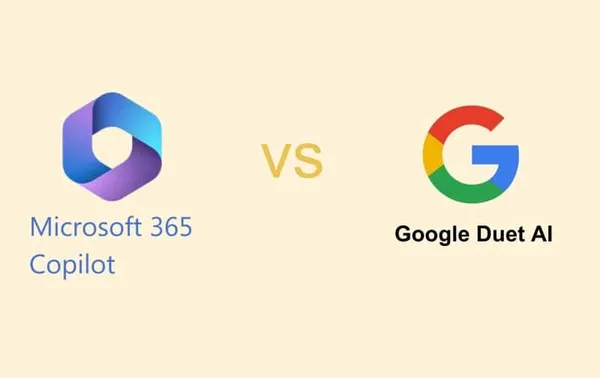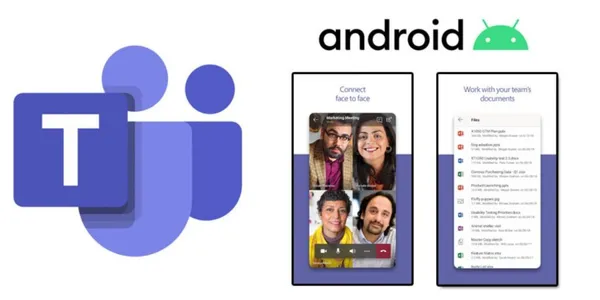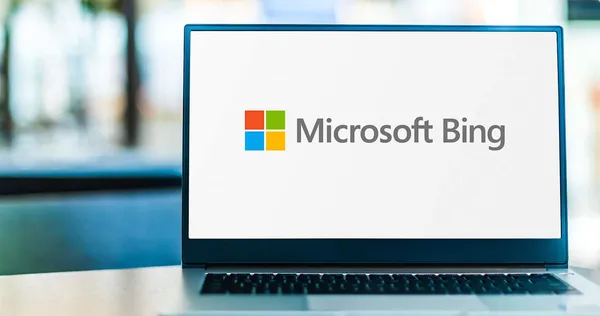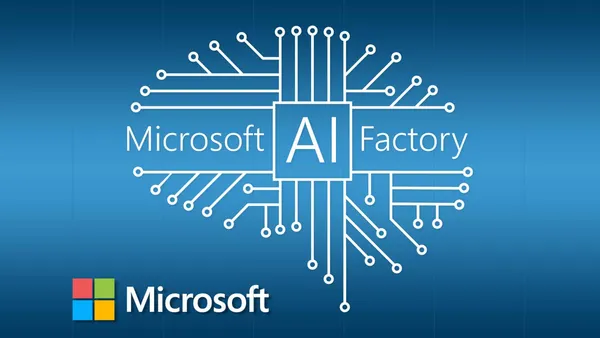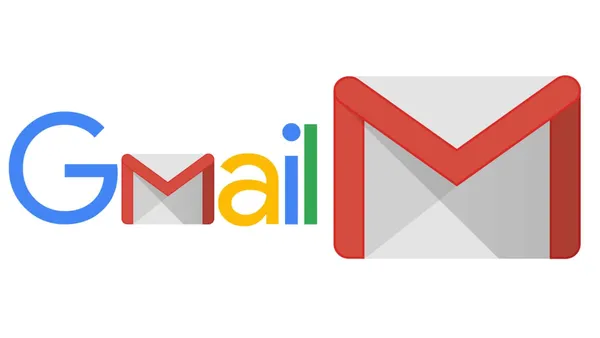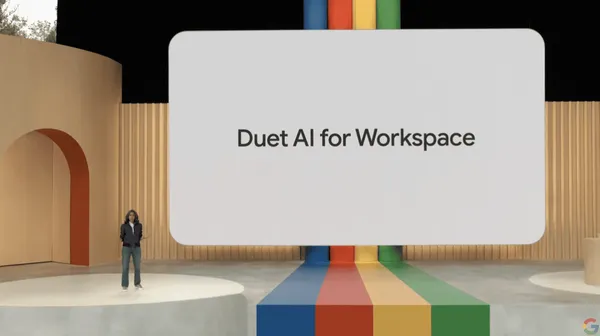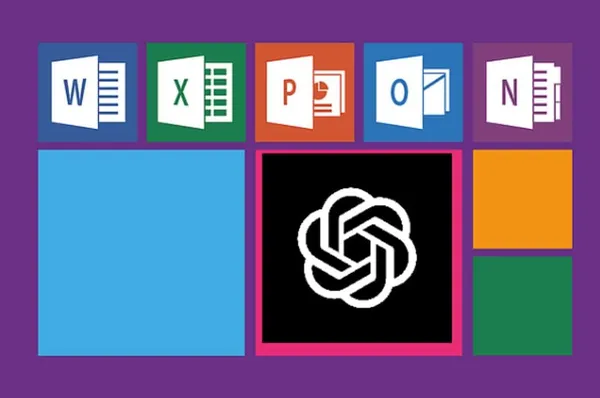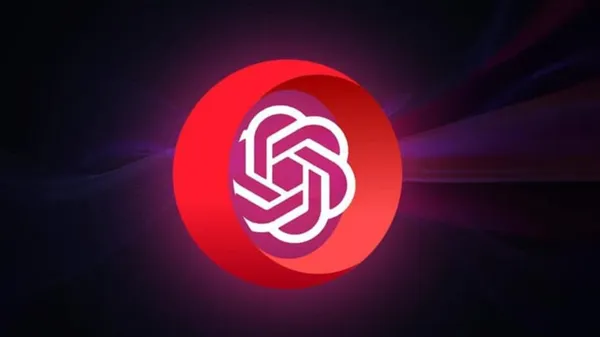
Knowledge base
May 13, 2023
Google’s AI responsibility: Real commitment or panic?
Google I/O reveals a company that feels pressured by rivals. Nevertheless, it still has potential to emerge as the victor.
Google I/O is under way and the company spent much of its main keynote talking about artificial intelligence, the progress the company is making in the field and what it means to be responsible with AI. That last part is especially interesting, because while other companies such as OpenAI and Microsoft are struggling to find a balance between letting go of AI and reigning it in a bit, Google focuses on the “reigning” aspect from the beginning.
James Manyika, who heads Google’s Technology and Society division, spoke during Google’s keynote about how the company wants to integrate AI responsibly, even as it introduced a host of new services.
“It is also important to recognize that AI has the potential to exacerbate existing societal challenges – such as unfair prejudice – and pose new challenges as it becomes more advanced and new applications emerge,” he wrote in a Google blog post. Therefore, we believe it is necessary to address ai in a responsible manner.”
Of course, it is easy to be drawn to the marketing of “accountability” that Google says is such an integral part of its work. However, there is another, more cynical interpretation: Google panicked and is using that framing to position itself as the superior AI platform.
Google clearly panicked thanks to ChatGPT and Bing
Looking at the Google I/O keynote, it’s pretty clear that the company had to come up with something to compete with ChatGPT and Bing, and Bard clearly wasn’t cutting it. And it didn’t just announce one or two features and some improvements to Bard; It released new feature after new feature after new feature. The keynote was a constant flood of generative AI features coming to Search, G Suite and virtually every other application in Google’s suite. It even launched generative AI features for Google Cloud and held itself up as the Software-as-a-Service solution in AI thanks to Vertex.
Reading between the lines, it seems Google not only felt threatened; It actually panicked. In retaliation, it made every product it could think of and came up with so many incredible new features that it’s hard to keep up. These include:
- Universal translation
- Generative AI in Google Search
- Google Bard improvements
- PaLM 2
- Google Duet
- Generative wallpapers
That’s not all, however, because Google would have you believe that a major reason for being behind the times was that it was “responsible” and taking its time.
Google claims responsibility is important
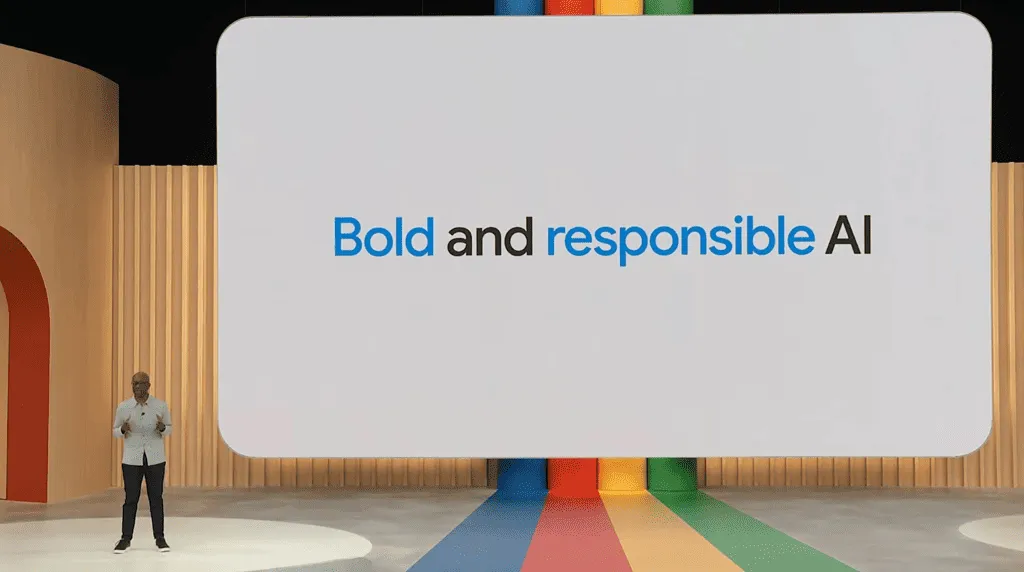
Google spent a lot of time talking about “accountability” in artificial intelligence, something companies like Microsoft and OpenAI have not done much of. The company is actively building tools that allow it to combat disinformation that its own technology can generate. This includes, for example, metadata that can watermark images as being generated.
“Responsibility” is also a great defense to hide behind, because although these features are rolled out in a Labs-style format that is behind a waiting list, they can say that the features are available, just not to everyone, and with the disclaimer they are not in their final state. It’s a great way to provide time until they are ready to roll out to the public.
Manyika’s entire speech was not just to preach the importance of being careful (which is not a controversial position to take). It is a way of letting companies know that Google wants to be seen as the adult in the room. While both Microsoft and OpenAI are moving forward, trying to outdo each other with AI language models whose limitations they don’t even understand yet, Google is trying to convey a sense of calm that it wants to take it easy and introduce features that are ready to go before they are deployed to the general public.
Google’s generative AI will also still contain inaccuracies
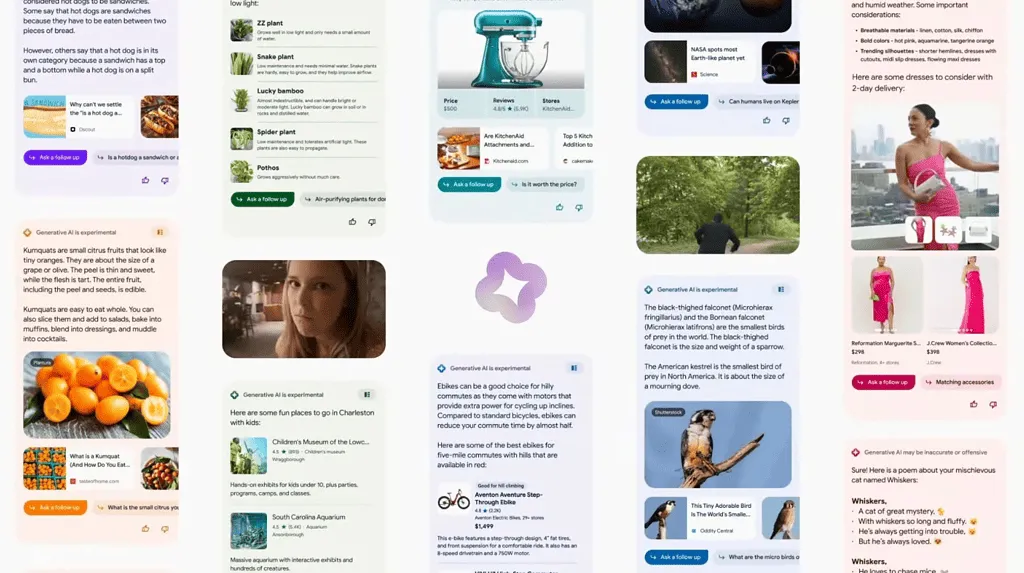
If you look at the bottom right of the image above, which shows examples of generative AI, you’ll see that Google still has a warning that says “generative AI may be inaccurate or offensive.” While most people would not have thought it was completely accurate, it shows that Google is not sure it has solved the problem of inaccuracy and misinformation that both Microsoft and OpenAI struggle with. It just wants you to think it is.
Of course, if Google was now on par with OpenAI and Microsoft (which remains to be seen), that’s already a big jump from what Bard looked like only a short time ago. However, being responsible does not mean much if its products are still in the same position as its competitors. Are the revelations regarding images good to have? Absolutely. However, the possibility of generating or receiving disinformation in the form of a search result has not been resolved, and that fact is deprioritized in these announcements.
Nevertheless, we will be excited to try out what Google has cooked up in terms of generative AI. These are great improvements that could put Google in the lead, with features aimed at enterprises in the form of Vertex AI on top of really useful features integrated into Search and part of Google Suite … but it could also just be a marketing spin to compensate for the shortcomings Google has faced so far.
Source: xda-developers
Want to know more?
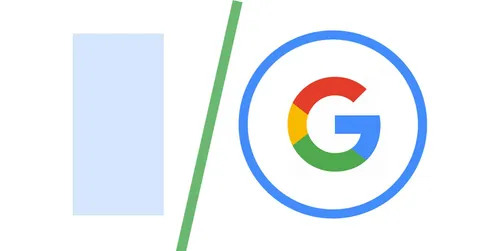
Related
blogs
Tech Updates: Microsoft 365, Azure, Cybersecurity & AI – Weekly in Your Mailbox.
